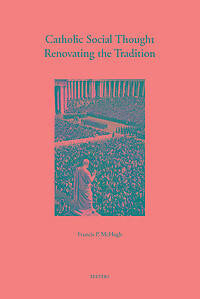
Bedankt voor het vertrouwen het afgelopen jaar! Om jou te bedanken bieden we GRATIS verzending (in België) aan op alles gedurende de hele maand januari.
- Afhalen na 1 uur in een winkel met voorraad
- In januari gratis thuislevering in België
- Ruim aanbod met 7 miljoen producten
Bedankt voor het vertrouwen het afgelopen jaar! Om jou te bedanken bieden we GRATIS verzending (in België) aan op alles gedurende de hele maand januari.
- Afhalen na 1 uur in een winkel met voorraad
- In januari gratis thuislevering in België
- Ruim aanbod met 7 miljoen producten
Zoeken
Omschrijving
As the sub-title indicates the book is a guide to resources in Catholic Social Thought. Part I is a summary in 24 Sections of the 'Distinctiveness, Strengths & Weaknesses of Catholic Social Thought'. Distinctions of Catholic Social Teaching, Non-official Catholic Social Thinking and Catholic Social Thought are drawn, with emphasis on the worth of the system of thought as a theory, with its telos of the 'common good', and its foundational principles as solidarity, justice and subsidiarity. The corpus of teaching is extracted from analysis of some 500 books and articles, in 5 languages, on Catholic Social Thought (constituting the major part of the book) which are summarised in 100-300 words on each. Part II represents survey and pedagogical research in colleges, universities, seminaries and other educational institutions from which is derived conceptions of the subject to guide a proposed syllabus for teaching the subject at 3 levels: beginners, graduates and postgraduates. Part III is the bibliography of books and articles covering the whole range of Catholic Social Teaching and Thought. Three appendices cover Institutes of Catholic Social Thought, Journals of Catholic Social Thought and Details on Secular Think Tanks on Policy-making. The relationship to economic and political policy-making, and to the social thought of other churches and secular institutions are recurrent themes throughout the book.
Specificaties

Alleen bij Standaard Boekhandel
+ 196 punten op je klantenkaart van Standaard Boekhandel
Beoordelingen
We publiceren alleen reviews die voldoen aan de voorwaarden voor reviews. Bekijk onze voorwaarden voor reviews.









